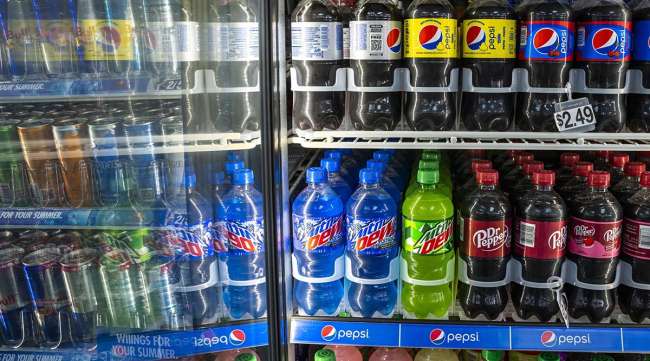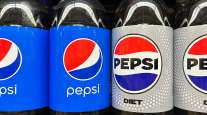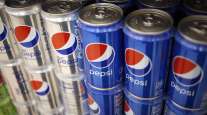Bloomberg News
PepsiCo Boosts Forecast as Sales Withstand Ozempic Threat

[Stay on top of transportation news: Get TTNews in your inbox.]
PepsiCo Inc. says appetite-suppressing drugs haven’t affected sales of its snacks and sodas so far, though the company is focused on package size and consumers’ portion-control concerns as it aims to reach its raised annual forecast.
“Honestly, we don’t detect it in any of our numbers right now,” PepsiCo Chief Financial Officer Hugh Johnston said in an interview Oct. 10, when asked about the recent drop in the company’s shares following Walmart’s comments about GLP-1 drugs such as Ozempic.
Calling it the “very early days” for the popular drugs, Johnston said PepsiCo is watching the trend and is prepared to react should consumer demand shift to smaller portions or less calories. “We’re studying it closely for obvious reasons,” Johnston said.
Executives said in prepared remarks following PepsiCo’s earnings release Oct. 10 that the company is focused on portion-control packages, zero-sugar beverages and nutritious foods as consumer preferences evolve.
Chief Executive Officer Ramon Laguarta reinforced the message on a call with analysts. “Of course, we’re observing the growth of these new drugs and its potential impact,” he said. “So far, the impact is negligible.”
Higher Forecast
Purchase, N.Y.-based PepsiCo raised its earnings growth forecast and reported results that beat expectations as consumers absorbed higher prices on the company’s snacks and beverages in the most recent quarter. Price increases drove results, with volumes in areas including North American beverages and Latin American convenient foods falling during the quarter.

Johnston
Johnston said that the company has continued to raise prices, but those increases are in line with the boost in commodity prices the company is paying.
“Revenue goes up and volume goes down,” Johnston said, noting that a shift in packaging leaves consumers paying a higher cost per ounce. “Overall, it’s a pretty healthy consumer. When they fill up their tank, they’re still buying a Pepsi and a bag of chips.”
The stock has dropped more than 10% over the past three months, hurt by concerns about slowing sales growth and the potential impact on snacking of GLP-1s, a new class of medicines used in obesity that subdue cravings. Organic revenue at the Frito-Lay unit rose 7% last quarter, half the rate of the prior quarter.
PepsiCo shares rose 1.4% at 9:48 a.m. in New York. Rival Coca-Cola Co. also gained.
Topping Estimates
Earnings of $2.25 a share for the third quarter were above analysts’ average estimate of $2.16. The maker of Tostitos chips and Mountain Dew sodas reported net revenue of $23.5 billion, also surpassing the consensus estimate.
The company expects core earnings per share growth of 13% at constant currencies this fiscal year, up from a prior estimate of 12%. Its organic revenue growth forecast remains unchanged at 10%.
The “strong results” should reassure investors about PepsiCo’s “ability to continue to deliver solid results post-2023,” said Citi analysts led by Filippo Falorni. Citi calls the concerns about the potential impact of GLP-1 drugs “overblown.”
PepsiCo said it continues to expect a negative 2 percentage-point foreign-exchange impact on revenue and core earnings per share growth.
PepsiCo ranks No. 1 on the Transport Topics Top 100 list of the largest private carriers in North America.
Want more news? Listen to today's daily briefing below or go here for more info:




